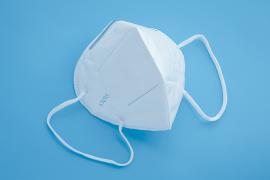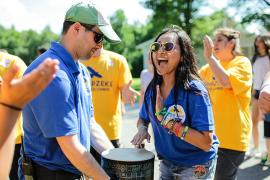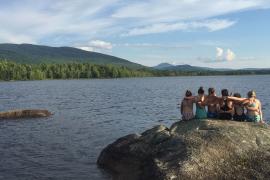If you are preparing to host campers on-site this summer, make sure you start your season off right by implementing your COVID-19-related procedures as soon as the staff arrive. This preparation and practice will:
- Protect your staff and allow you to manage COVID-19 if it does show up so your camp session(s) won’t be unnecessarily delayed.
- Allow you to see which new practices are working well and which ones may need to be adjusted.
- Train staff on your new protocols so they are familiar and running smoothly when campers arrive.
We asked David Shore, senior scientist at Environmental Health & Engineering, Inc., a Boston-based consulting firm specializing in environmental health, for advice on how to best prepare for campers amid the pandemic.
How should camps that will be opening for on-site camp this summer approach staff training with regard to COVID-19?
Staff training is paramount for successful orientation to the “new normal” of camp this summer. Providing background information on the pandemic is helpful as is sourcing this information from credible sources such as the US Centers for Disease Control (CDC) and the state departments of health. Accompanying this information should be an abstract of how camp is going to be managed along with expectations and responsibilities of staff in caring for their health and those in their charge.
What specific procedures would you suggest camps implement prior to and during staff training so they will be prepared to continue them seamlessly when campers arrive?
It is essential that staff members be informed before their arrival at camp about pre-camp health screening, the use of small groups, hand and cough etiquette, physical distancing within and between groups, as well as when face coverings are appropriate.
How often should camps screen their employees (take temperature, etc.) for COVID-19?
In our Field Guide, camps are given the flexibility to decide on the level and frequency of staff and camper screening. For day camps with staff and campers coming and going every day, daily screening is appropriate. For overnight camps with sessions longer than 14 days, camp directors may anticipate relaxing the screenings for campers and staff remaining on the premises while workers and staff who leave camp every day might still be screened.
What should happen during on-site staff training if one or more individuals test positive for COVID-19 or are showing symptoms of the illness? And how will that impact campers or other staff who haven’t arrived at camp yet?
Develop a Communicable Disease Management Plan as recommended by the Field Guide and the Association of Camp Nursing. Share the plan with the local health and EMS departments and implement the plan before camp starts with staff orientation. Follow the plan in the event that one or more persons develop symptoms. Staff and campers often do get sick at camp. Camp physicians, nurses, and aides are trained to recognize signs and symptoms of COVID-19 and act according to the plan.
Anything else you think camps should keep in mind when preparing staff for their new normal at camp this summer?
Communication. Communicate with staff, parents, campers, vendors, local health departments, and nearby healthcare facilities. Camp leadership can anticipate a higher level of communication with everybody, on a daily basis, and certainly during difficult times. Considerations should be made for providing additional staffers available on short notice to be able to handle incoming calls and dispatching daily status email messages.
The views and opinions expressed by contributors are their own and do not necessarily reflect the views of the American Camp Association or ACA employees.




